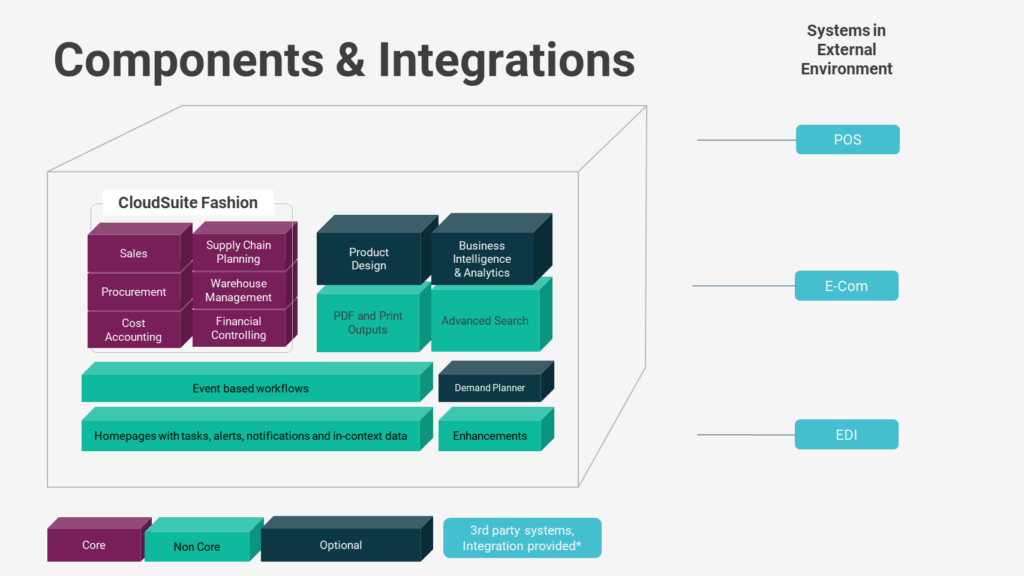Towards the end of 2019, the fashion retail industry was faced with several challenges. McKinsey’s State of Fashion 2020, published before the pandemic, highlighted slower growth and consumer concerns about inclusivity and sustainability as key issues facing the industry. In 2020, the industry took a turn for the worse with the outbreak of COVID-19. High street shops closed for months, consumers in lockdown did not have a need for new clothes and an uncertain future created a shift in discretionary spending. Concerns about the human impact on the environment have seen significant increase too, leading to a far more conscientious, aware consumer.
Fashion retail companies need to rethink their business strategies and innovate in order to survive these trying times.
Companies need to have fluid omni-channel processes, with key focus on no-contact retail. The processes need to be streamlined, to increase spend in the right areas and reduce costs on outdated ways of operating. Businesses need complete visibility and transparency of every process – from manufacturing to retail across the supply chain, and also need to monitor and manage their suppliers and raw materials from a sustainability point of view. Additionally, analyzing historical data, over short durations such as lockdowns, as well as over longer seasonal trends, is required to accurately forecast for the future and prepare accordingly.
All of the above cry out for a robust integrated IT system. No organization can achieve the following without a core ERP and essential add-ons. But with margins as tight as they are and budgets stretched thin, a conventional ERP implementation may well be out of the question at a time like this.
What are the downsides of a conventional ERP implementation?
- Time – a few months to identify what is needed, more to configure the system, more to test, test and test again and before you know it, it’s been a year since the project started
- Money – all the time spent equates to money
- Outdated practices – you could completely replicate your old way of working, without streamlining and adapting to what the industry requires right now
Preconfigured Solutions
That’s where pre-configured solutions come in. Such solutions take processes common to the industry and pre-configure them in the ERP to save time and effort. Such processes are not key differentiators in a company’s value addition, they are simply routine processes required for day-to-day operations. There is nothing to be gained by reinventing the wheel. For example, a basic sales process from order to cash will be pre-configured and available for plug and play from day one of an implementation. Infor’s CloudSuite Fashion Implementation Accelerator (IA) is an example of such a preconfigured solution.
Fortude’s Fashion Retail-in-a-Box
Preconfigured solutions tend to lack the interconnectedness needed in today’s world. They are designed for the ERP only, which is not enough. Common add-ons, such as digital commerce, product lifecycle management (PLM) or analytics are usually excluded. Fortude’s Fashion Retail-in-a-Box (FRIB) takes the concept of a preconfigured solution a step further.
FRIB takes Infor’s IA and adapts it to provide a fully functioning, user-oriented, plug and play system for fashion companies.

The solution preconfigures not just core ERP business processes such as order to cash, procurement to pay and warehouse management but also components such as digital commerce, PLM and analytics, which are usually on different systems and require interfaces to the ERP. It is all on the cloud, saving the hassle of expensive hardware and IT staff. The different components are accessed via a simple elegant user-interface equipped with homepages, alerts and in-context data.
How has the solution been preconfigured?
Fortude has a wealth of experience in the world of fashion retail. Users ask for similar processes to be configured in much the same way across most implementations and find gaps that require similar modifications. Fortude has leveraged its expertise to preconfigure a solution that caters to most of these common needs, end-to-end, including both ERP and non-ERP components.
How will it cater to a specific customer’s needs?
It will not, not entirely. The premise for the model is 80:10:10.
80% of what is required for an implementation will be available out of the box. Most customers do not need a radically different method to raise a purchase order to a supplier or an invoice to a customer. A logo and a company address may be as much customization as these areas require.
10% will be additional configurations required by the customer. The unique processes that a company feels may give them an edge over their competition, such as an algorithm for calculating available to promise or a particular costing structure, will be configured as part of this 10%.
The remaining 10% will be additional enhancements such as an interface to a legacy system or excel uploads for certain master data elements.
FRIB was designed to provide small and medium fashion retail businesses looking to scale, an affordable way to get a complete end-to-end system that caters to all their needs. But some of the key features built, also make it an ideal solution for fashion retail businesses looking for a complete system, during a time of uncertainty and change
How can FRIB help in a post-pandemic world?
- Adaptability – Because it is designed to work for various customers with differing business processes, adaptability is built into the FRIB architecture. It contains more processes than a company may require, with the option of turning new components on later with relative ease. For example, perhaps a company does not currently require a sustainability certification for suppliers but decides to do so a year after implementation.
- Agility – FRIB takes approximately 4 months to implement, an obvious saving in time and cost. Unlike a conventional ERP implementation, a FRIB implementation is fully compatible with an agile approach. Companies can go-live with the system and then have monthly releases for modifications and adapted functionality. This gives the flexibility to alter processes to suit changing needs, whilst still providing the option of going live fast with base functionality.
- Usability – The complexity of the system is hidden behind a familiar, easy to use, social media style frontend, which is very intuitive and easy to learn. This means you can go-live quickly and reap the benefits of the system without wasting time and effort for a long user-acceptance phase.
- Sustainability – From style conception to delivery, FRIB allows the maintenance and management of key sustainability indicators.
(For more on this topic, please see part 2 of this blog series coming soon)
- Omni-channel – FRIB caters to retail POS, e-commerce and manual order processes. It also has a pre-configured sales order interface for uploading orders via a basic spreadsheet format. Whichever process is used for demand capturing, the demand is consolidated and treated as equal once captured. If the pandemic causes a large shift away from traditional channels to digital channels, FRIB is digital ready.(For more on this topic, stay tuned for part 3 of this blog series)
- Stock fluidity – together with omni-channel sales capture, is the necessity to have cross-channel available to promise when fulfilling customer orders. The ability to move stock from where it sits to where it is needed, is built into FRIB – be it store to online, warehouse to store or store to click and collect. This provides a truly omni-channel system with no stock shortages in one channel and stock surpluses in another. (Part 3 of this blog series will further explore this.)
- Analytics – Data and analytics will be key to getting through a time of change. FRIB utilizes Infor’s Birst Business Intelligence and Analytics system, providing preconfigured dashboards and reports as well as the ability for users to create their own custom reports on the fly.
(For more on this topic, please see part 4 of this blog series.)
For more information on FRIB, visit https://fortude.co/fashion-retail-in-a-box/ or tune into this webinar.
Written by:
Monalee Wonnacott
Senior Consultant - Infor Services, Fortude
Related Blogs
Subscribe to our blog to know all the things we do


